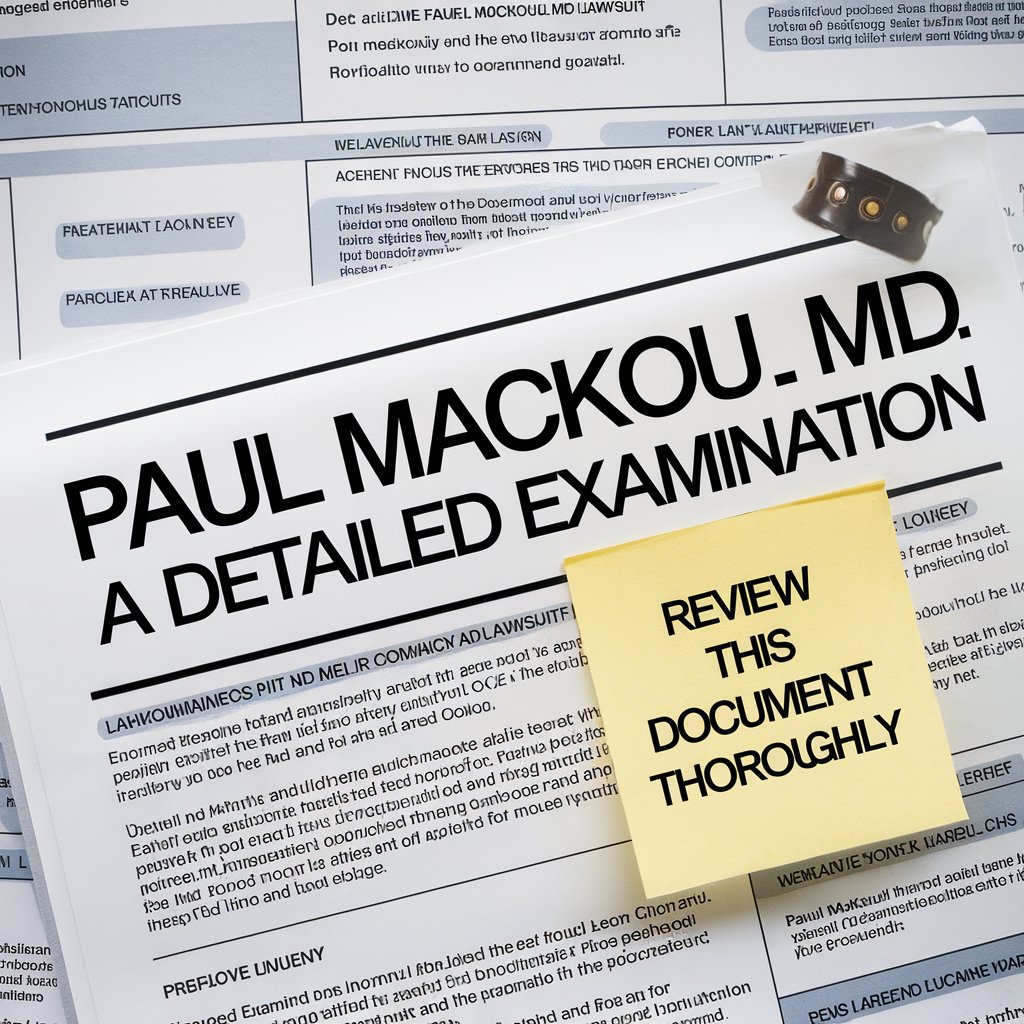Paul Mackoul MD Lawsuit: A Detailed Examination

Introduction
The medical field is often marked by a mix of groundbreaking advancements and controversial legal battles. Among these controversies, the term “Paul Mackoul MD lawsuit” has emerged as a subject of significant public interest. Dr. Paul Mackoul, a respected gynecologic surgeon known for his expertise in minimally invasive procedures, has faced legal challenges that raise important questions about healthcare practices and patient rights. This article explores the specifics of the Paul Mackoul MD lawsuit, aiming to shed light on its implications while maintaining a balanced and comprehensive perspective.
Table of Contents
Who is Paul Mackoul MD?
Dr. Paul Mackoul is a co-founder of The Center for Innovative GYN Care (CIGC), a specialized medical center focused on advanced gynecological surgeries. With a reputation for pioneering techniques in laparoscopic and robotic surgery, Dr. Mackoul has garnered accolades for improving patient outcomes and minimizing recovery times. His career spans decades, and he has contributed significantly to women’s health through education, research, and clinical practice.
Background of the Lawsuit
Legal disputes involving medical professionals often stem from patient grievances, procedural disagreements, or professional conduct issues. The Paul Mackoul MD lawsuit reportedly centers on allegations related to medical malpractice, patient dissatisfaction, and procedural outcomes. Although the details of the lawsuit are not fully disclosed due to legal restrictions, certain elements have been made public, sparking discussions about accountability and ethics in medicine.

Key Allegations
- Medical Malpractice:
The lawsuit alleges that Dr. Mackoul’s surgical practices may have led to complications in some patients. Claims of negligence are serious in the medical field, as they directly impact patient safety and trust. - Lack of Informed Consent:
Another allegation revolves around whether patients were adequately informed about the risks and benefits of certain procedures. Ensuring that patients give informed consent is a cornerstone of ethical medical practice. - Post-Surgical Outcomes:
Complaints about unexpected or suboptimal outcomes have also been mentioned. While no surgical procedure is without risk, the plaintiffs argue that their experiences warrant further investigation.
Legal Proceedings and Developments
Legal cases in the medical field are often complex, involving multiple stakeholders, expert testimonies, and lengthy deliberations. In the Paul Mackoul MD lawsuit, attorneys for the plaintiffs are likely focusing on establishing evidence of negligence or breach of duty. Dr. Mackoul’s legal team, on the other hand, is expected to present counterarguments highlighting his adherence to medical standards and the inherent risks of surgical procedures.
As of now, the case’s status remains unresolved, with court proceedings ongoing. Both sides are preparing to present evidence and testimonies that could sway the outcome in their favor.

Implications for the Medical Community
- Reevaluation of Standards:
Lawsuits like this one prompt healthcare providers to reexamine their practices. Institutions may implement stricter protocols for patient communication, surgical preparation, and follow-up care to avoid similar issues. - Transparency in Medicine:
The lawsuit underscores the importance of transparency between doctors and patients. Detailed discussions about potential risks, procedural alternatives, and expected outcomes are vital for building trust. - Impact on Reputation:
Legal battles can tarnish even the most illustrious careers. For Dr. Mackoul, the lawsuit represents not only a personal challenge but also a professional one, as it may affect his reputation and future practice.
Patient Rights and Responsibilities
Patients play a crucial role in ensuring their healthcare experiences are positive. While doctors are responsible for providing care, patients must also actively participate by:
- Asking detailed questions about procedures and risks.
- Reviewing all consent forms thoroughly.
- Reporting any concerns promptly to medical staff.
Similarly, healthcare providers must prioritize empathy, transparency, and adherence to medical ethics to maintain trust and minimize disputes.

Lessons Learned
The Paul Mackoul MD lawsuit serves as a reminder of the delicate balance between medical innovation and ethical accountability. As a surgeon known for pushing the boundaries of gynecological care, Dr. Mackoul has undeniably contributed to the field. However, this case highlights the potential pitfalls of high-stakes medicine, where even the best intentions can lead to legal scrutiny.
Also read: Did Trains Leave the Hurricane Path Earlu?
Conclusion
The Paul Mackoul MD lawsuit raises essential questions about the responsibilities of medical professionals and the rights of patients. While the case’s outcome remains uncertain, its broader implications for the healthcare system are undeniable. By fostering open communication, maintaining high standards of care, and addressing grievances promptly, both patients and providers can work towards a more transparent and trust-filled healthcare environment.
Whether viewed as a cautionary tale or an isolated incident, the lawsuit emphasizes the need for diligence, compassion, and continuous improvement in medical practice. For those following the case, it serves as an opportunity to reflect on the complexities of modern healthcare and the shared responsibility of ensuring its integrity.


